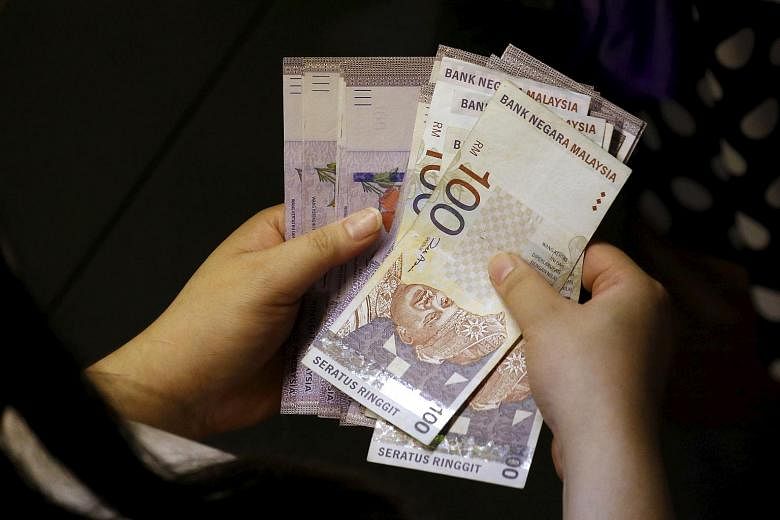KUALA LUMPUR (Bloomberg) - Malaysia's central bank left interest rates unchanged for a seventh meeting as quickening inflation and a weakening currency reduced scope for the central bank to add stimulus.
Bank Negara Malaysia kept the overnight policy rate at 3.25 per cent, it said in a statement in Kuala Lumpur on Friday (Sept 11). The decision had been predicted by 22 of 23 economists surveyed by Bloomberg News, while one had forecast a 25 basis-point increase.
Malaysia's export-dependent economy is being threatened by a rout in commodity prices and the country's woes are being exacerbated by an exodus of foreign funds as they dumped about US$3.8 billion (S$5.38 billion) of the country's shares this year. Policymakers have ruled out capital controls as the currency plunged to a 17-year low and eroded reserves.
"We continue to expect Bank Negara Malaysia to pause through 2015, remaining firmly in 'wait and see' mode," Weiwen Ng, a Singapore-based economist at Australia & New Zealand Banking Group, said before the decision.
"Monetary easing will further weaken the currency and possibly exacerbate capital outflows."
The ringgit fell for a 12th week, the longest stretch in Bloomberg data going back to 1971, as slowing Chinese growth and prospects of a US interest-rate increase sapped demand for developing-nation assets.
It touched 4.3798 against the US dollar on Thursday, the lowest level since January 1998 and has dropped 19 per cent this year.
Growth in the economy slowed to 4.9 per cent in the second quarter from a year earlier, expanding the least in almost two years after a new consumption tax curbed private spending.
Consumer prices rose 3.3 per cent in July, the fastest rate in almost a year. Inflation is forecast to be in a range of 2 per cent to 3 per cent in 2015.
Malaysia has been struggling to boost confidence in its economy and government finances since oil prices started slumping late last year. Other than allegations of irregularities at a state investment company, Prime Minister Najib Razak is facing accusations of impropriety after it was disclosed that political donations ended up in his private accounts in 2013. The accounts have since been closed.

